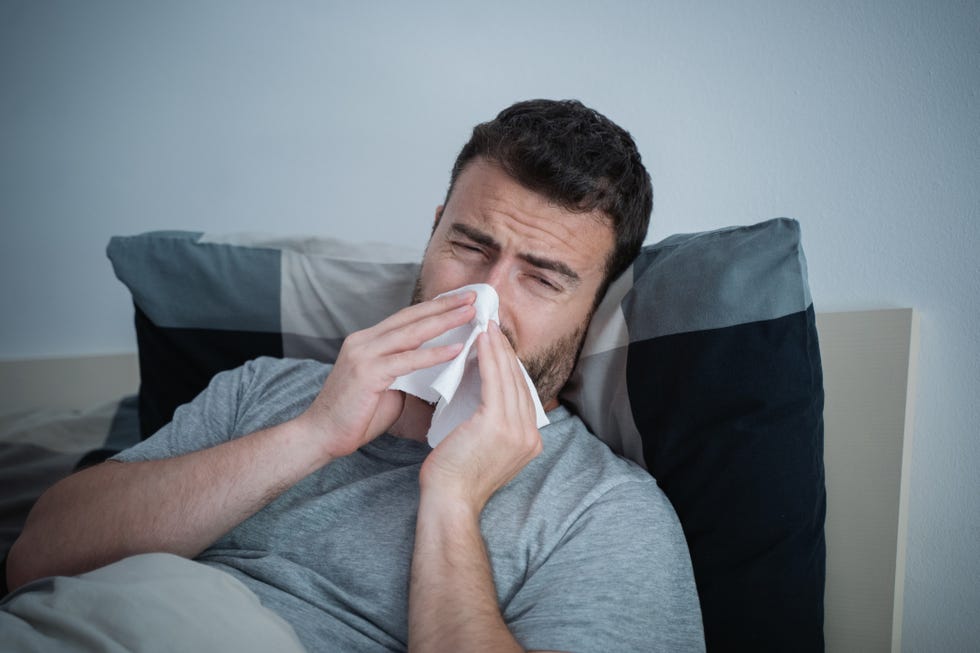The newly approved insomnia drug daridorexant (Quviviq) improves sleep onset in adults, new phase 3 data suggest.
In the first of two studies, a 50-mg dose of daridorexant was associated with a reduction in latency to persistent sleep (LPS) of 11.7 minutes at month 3 vs placebo. The drug was also associated with improved daytime function.
Based on these results, the US Food and Drug Administration (FDA) approved daridorexant for the treatment of insomnia in adults earlier this month.

Dr Emmanuel Mignot
“The study shows that it’s a really good drug that works differently from most other drugs,” study investigator Emmanuel Mignot, MD, PhD, professor of Sleep Medicine, Stanford University, California, told Medscape Medical News. “It’s more specific to sleep,” Mignot added.
The findings were published in the February issue of Lancet Neurology.
Two Trials, Three Doses
Daridorexant is a dual orexin receptor antagonist intended to reduce excessive wakefulness. The investigators hypothesized that, because of its therapeutic target, the drug would not cause sleepiness on the morning after administration.
To examine daridorexant’s safety and efficacy, the researchers actually conducted two double-blind, parallel-group, phase 3 trials. Eligible participants were age 18 years or older, had moderate to severe insomnia disorder, and a self-reported history of disturbed sleep at least 3 nights per week for at least 3 months before screening.
In study 1, investigators randomly assigned participants in groups of equal size to daridorexant 25 mg, 50 mg, or placebo. In study 2, participants were randomly assigned to daridorexant 10 mg, 25 mg, or placebo.
During a placebo run-in period, participants underwent polysomnography (PSG) on two consecutive nights to define baseline values. At the end of months 1 and 3 of the treatment period, participants again underwent 2 nights of PSG. A final night of PSG occurred during the placebo run-out period.
Self-assessments included the Insomnia Daytime Symptoms and Impacts Questionnaire (IDSIQ). This questionnaire, to which participants responded daily, is designed to measure the daytime impairments related to insomnia. The IDSIQ questions focus on sleepiness, mood, alertness, and cognition.
The study’s primary endpoints were change from baseline in wake after sleep onset (WASO) and LPS at months 1 and 3. Secondary endpoints were change from baseline in self-reported total sleep time (TST) and change in the IDSIQ sleepiness domain score at months 1 and 3.
The investigators enrolled 930 participants in study one and 924 in study two. In each study, more than two thirds of participants were women, 39% were age 65 or older, and demographic and baseline characteristics were similar between treatment groups.
Dose-Dependent Effects
At month 1 in study 1, WASO was reduced by 22.8 minutes (P <.0001 in patients who received the dose and by minutes>P <.0001 in the dose. at month waso was reduced by minutes>P <.0001 in those assigned to mg and by minutes>P <.0001 in those assigned to mg.>
LPS was reduced by 11.4 minutes (P <.0001 at month and by minutes>P <.0001 at month with the dose vs placebo. lps was reduced by minutes>P=.0005) at month 1 and by 7.6 minutes (P=.0015) at month 3 with the 25-mg dose vs placebo.
At both timepoints, self-reported TST was significantly increased and the IDSIQ sleepiness score significantly improved with the 50-mg dose. The 25-mg dose was associated with significant improvements in self-reported TST at both timepoints, but not with significant improvements in IDSIQ sleepiness score.
In study 2, the 25-mg dose was associated with significant reductions in WASO at month 1 (11.6 minutes, P=.0001) and month 3 (10.3 minutes, P=.0028) compared with placebo. The 25-mg dose was not associated with significant differences in LPS at either timepoint, however.
Similarly, the 25-mg dose was associated with improvements in self-reported TST, but not with the IDSIQ sleepiness score. The 10-mg dose was not associated with improvements on any endpoint compared with placebo.
Longer Studies Needed
In an accompanying editorial, Kai Spiegelhalder, PhD, University of Freiburg, Germany, and colleagues point out that although insomnia disorder is defined by self-reported difficulty initiating or maintaining sleep, none of the primary or secondary endpoints in these trials addressed these symptoms.
However, Mignot noted the use of the IDSIQ scale is the most interesting aspect of the study. Although difficulty with concentration and mood impairment are major symptoms of insomnia, they are often neglected.
“This drug was reversing the daytime impairment that insomniacs have,” said Mignot. “We now need to systematically study people not only for the effect on sleep, but also that it makes them feel better the day after.”
He added that most of the current hypnotics were not developed to treat insomnia. Daridorexant, in contrast, targets the wake-promoting orexin system.
“It works more selectively on sleep and not on other things. Most of the other sleeping pills have more complex effects on the brain,” Mignot said.

Dr John Winkelman
Commenting on the study for Medscape Medical News, John Winkelman, MD, PhD, professor of psychiatry at Harvard Medical School, Boston, Massachusetts, said the low prevalence of side effects associated with daridorexant was remarkable.
“This is not what most of the benzodiazepine receptor agonists looked like,” said Winkelman, who was not involved with the research.
Many insomnia drugs affect transmitter systems that are widespread in the brain, thus provoking side effects. But orexin-receptor antagonists “don’t seem to produce a lot of side effects,” he noted.
Although the study duration was reasonable, longer studies will be necessary, he added.
“And it would be nice to see comparative data. Prescribers want to see some context.” said Winkelman.
The study was funded by Idorsia Pharmaceuticals. Mignot reported receiving research or clinical trial funding from Axsome, Jazz Pharmaceuticals, Avadel, Apple, Huami, Sunovion, and Takeda. He has also received consulting fees or speaker’s conference reimbursement from Idorsia, Centessa Pharmaceuticals, Jazz Pharmaceuticals, Avadel, Dreem, and Takeda. Winkelman has consulted for Idorsia and has participated in investigator-initiated studies supported by Merck.
Lancet Neurol. Published in February 2022 issue. Abstract, Editorial
Follow Erik Greb on Twitter: @MedscapeErik .
For more Medscape Neurology news, join us on Facebook and Twitter
Note: This article have been indexed to our site. We do not claim legitimacy, ownership or copyright of any of the content above. To see the article at original source Click Here











